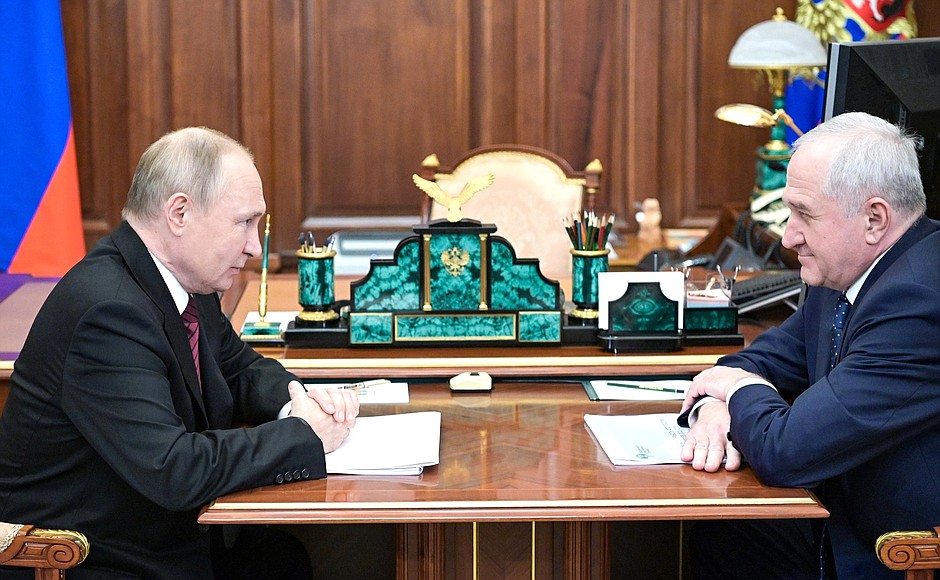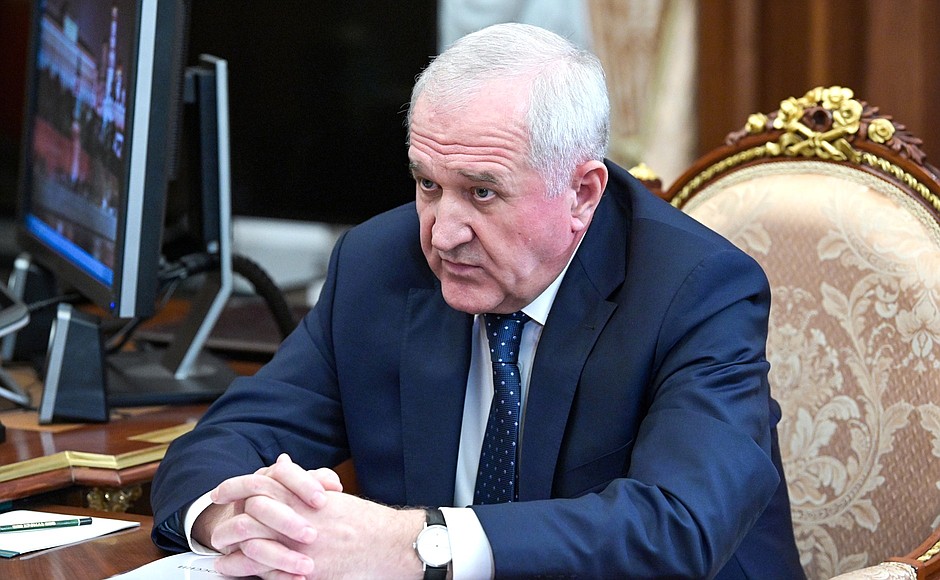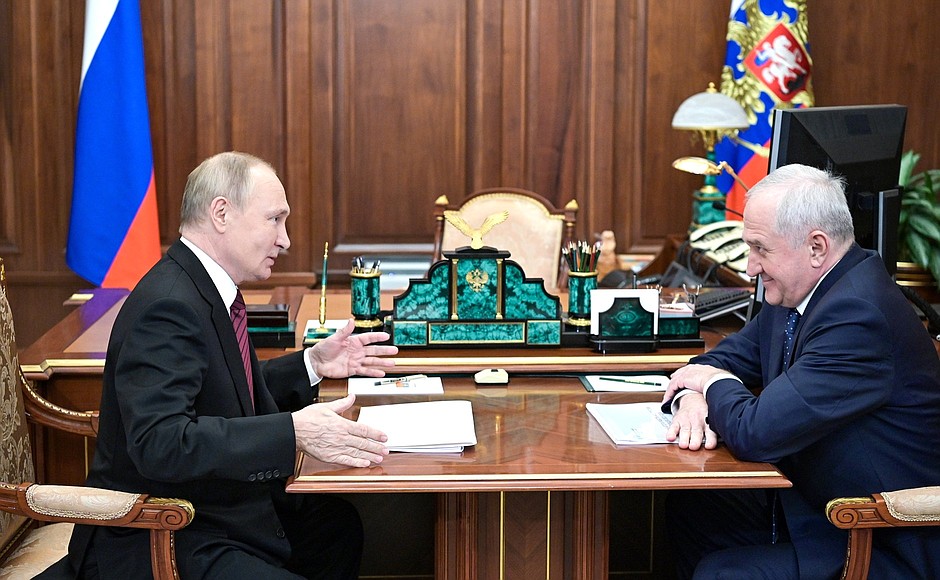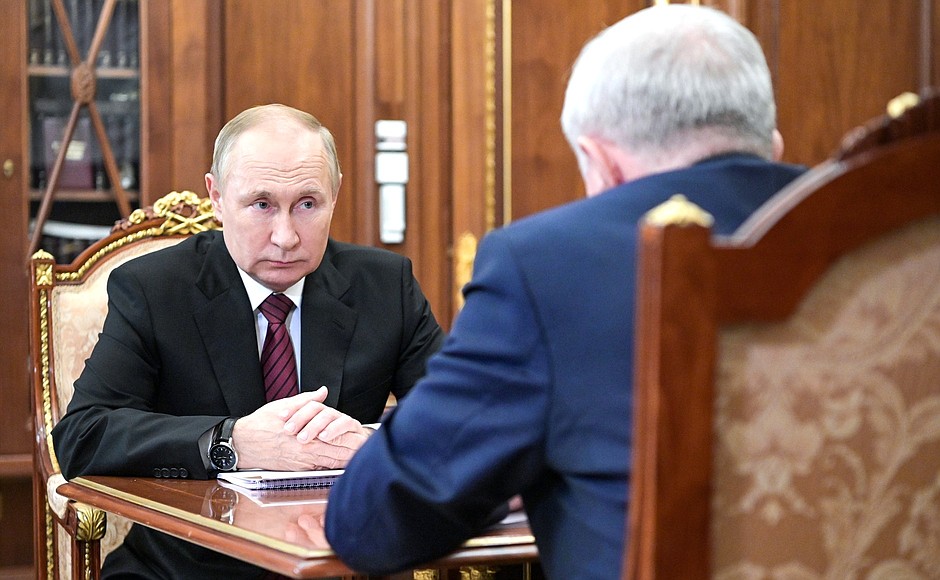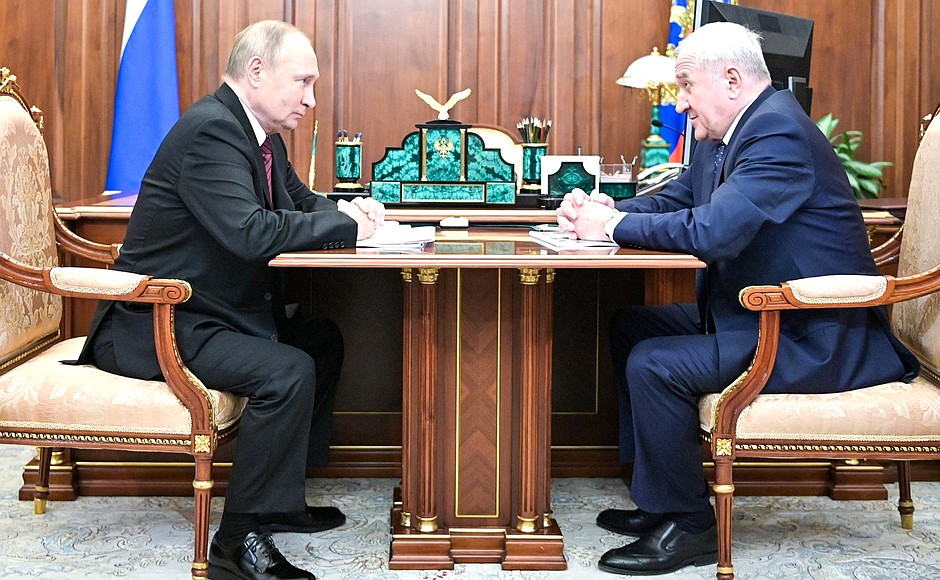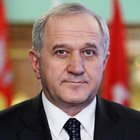Vladimir Putin congratulated the Russian customs personnel on their professional holiday.
* * *
President of Russia Vladimir Putin: Mr Bulavin, the forecast target for the transfer of funds to the federal budget in the first nine months of the year has been executed by 105 percent. As far as I know, export and import revenues are balanced; the figures are almost identical, which is very good because there was a period when imports decreased, but they are growing now. The effectiveness of the customs work and customs control has increased by 65 percent year on year.
First of all, I would like to thank you and all the customs personnel for this, which is a good reason to congratulate you on your professional holiday, Customs Officer Day.
Head of the Federal Customs Service Vladimir Bulavin: Mr President, thank you very much for the congratulations and the kind words to the customs personnel and for your constant attention to the Federal Customs Service. We will do our best to fulfil the tasks set to us.
It has been a challenging year for the customs agencies, just as for the rest of the country. The sanctions adopted by unfriendly countries have created unsubstantiated obstacles in the movement of goods and payments for them, disrupted the transportation and logistics chains that took years to create, had an adverse effect on our foreign trade and therefore affected the customs sphere as a whole.
Under these circumstances, our priority task was to minimise the consequences of the sanctions and their effect on our economy and business, do all we can to promote trade, primarily the import of goods essential for our economy, that is, socially significant goods, and, of course, provide every possible assistance to our Armed Forces and defence industry companies in the attainment of the goals set to them.
In light of these new challenges, customs operations were adjusted to address our tasks systemically and efficiently. Today we can review our performance in the first nine months of the year.
You have already noted that we have fulfilled the forecast. Over the past nine months, the electronic customs clearance centres have completed more than 3 million online customs declarations. The total volume of cleared freight, both imports and exports, is 691 million tonnes, worth $611 billion. The customs duties collected amount to 4.796 trillion rubles, which is 219 billion more than we predicted.
Vladimir Putin: And that is exactly 105 percent, right?
Vladimir Bulavin: Yes, 105 percent.
It should be noted that the customs revenue collected, specifically 850 billion rubles, was used to support businesses dealing with customs. If the customs clearance rate remains as it is, this amount will increase to 1 trillion rubles by the end of the year.
We have digitised all the resolutions, put forward by yourself and the Government, concerning support for businesses dealing with customs and respective mechanisms, and we have integrated them with our information system, which guarantees that these solutions can be applied uniformly and consistently across the entire system, minimising subjective factors.
First, it should be noted that the most helpful measure for businesses was customs duty exemption for essential and socially significant products. The total volume of goods imported duty-free is 6 million tonnes. I believe this measure has alleviated shortages in shops and prevented price hikes.
Our aviation industry has found itself in a challenging situation due to the sanctions. Many aircraft were formally under temporary import, therefore, we had to legalise them as under free circulation. Over nine months, we have released 297 aircraft, which provided 264 billion rubles in customs duty exemptions, to be used as support funding.
Vladimir Putin: That is a substantial amount.
Vladimir Bulavin: It is.
I should also mention parallel imports. Since May, parallel imports across 52 product categories have been organised. We estimate that more than 1 million tonnes of goods, essential for our industrial production, were imported, worth almost 6.5 billion rubles. This is quite significant, especially when it comes to the categories of goods that were banned by the sanctions.
Not only companies but also individuals benefitted from support. The duty-free threshold for e-commerce customers has been increased from 200 to 1,000 euros, significantly expanding people’s access to the goods they can buy online.
I also want to note that the large-scale reform we conducted, as per your resolution, has fully justified itself and continues to be relevant in the current conditions.
Our information systems remain flexible, consistent, reliable and effective in operation, considering the large number of features that are unavailable and the calibrations that are required. Customs clearance declarations can be submitted via 16 electronic customs clearance centres and 8 electronic customs offices.
Given the current situation, we have expanded the so-called green sector that features minimal risks, and we have added 3,000 more entities involved in foreign economic operations there. This sector now accounts for 76 percent of all submitted declarations and for 88 percent of all payments. Most importantly, it is possible to automatically issue these declarations.
Today, online declaration centres automatically record 85 percent of online declarations, and they automatically issue 33 percent of them. In other words, we can say that out of the three million declarations submitted, one million have been issued automatically. The process takes 30 seconds in the morning, and 2.5 minutes in the evening, when we are processing peak loads.
In addition, I would like to note that we have fulfilled another decision you made, and we have launched a newly-completed data-processing centre in Tver. They are currently installing equipment there, and all our information resources will be relocated to new facilities. This will allow us to considerably expand our digital capabilities and to start implementing stage by stage our programme, our Strategy-2030, to convert from online customs clearance procedures to those featuring artificial intelligence. As we say, this implies a conversion to intelligent customs clearance methods.
With new constitutional laws signed this year, and four new regions having joined the Russian Federation, we are moving to establish new customs divisions in the new Russian regions. We are planning to set up two customs houses in the Donetsk and Lugansk people’s republics, as well as one customs outpost in the Kherson Region and one more in the Zaporozhye Region. We will assign responsibility for them to our Southern Customs Directorate.
Mr President, while we are establishing customs divisions, existing customs agencies in Russian territories bordering on the newly incorporated territories can effectively deal with customs clearance and customs control matters.
Theoretically speaking, it is possible to submit several dozen declarations daily. Given that currently we handle 10,000 declarations, we can effectively cope with this new influx.
We have trained customs officials for the new customs agencies at our Russian Customs Academy. Some of them have been trained at our central administration during various conferences, seminars and webinars. However, this process is rather complicated because their customs clearance concepts were based on a different legal framework and entirely different software packages. Nevertheless, we believe that we will be able to launch customs clearance and customs control processes in the newly-integrated territories by New Year’s Eve or in early January, as stipulated by law.
On the whole, we see no problems here, and everything is proceeding according to plan, without any setbacks.
Vladimir Putin: Good.
<…>
